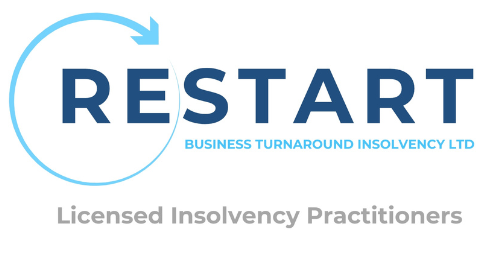
Does Voluntary Liquidation Affect Your Credit Rating?
Facing voluntary liquidation can be a daunting process, and it’s vital to understand the implications of entering into the formal process. Our Insolvency experts here at Restart BTI have put together this blog to discuss whether voluntary liquidation could affect you personally and how to recover from it. So, does voluntary liquidation affect your credit rating?
Generally, voluntary liquidation shouldn’t affect your personal credit rating. As a limited company is recognised as a separate legal entity from the people who run it, your personal finances shouldn’t be affected by the eventual dissolution of your company.
Learn about voluntary liquidation and how it could affect your credit rating with Restart BTI.
Will Voluntary Liquidation Affect My Credit Rating?
Voluntary Liquidation shouldn’t affect your credit rating as your business is a separate entity to you. As a company director, you are protected by limited liability, which means that your personal assets are safe if your business fails or loses. There are exceptions to this, however, such as:
Wrongful Trading
According to the Companies Act, company directors must “exercise reasonable care, skill and diligence” when running a business. If you fail to do so and the company becomes insolvent, there is a possibility that you will be found guilty of fraudulent or wrongful trading. This puts you at risk of being liable for the company’s debts.
Some examples of wrongful trading include:
- Taking orders and money from customers without fulfilling or paying for the goods.
- Using company money for purposes that do not benefit the company.
- Selling your business assets for less than market value.
- Falsifying accounts and hiding your insolvency from your creditors.
Overdrawn Directors’ Loan Accounts
If you take more money out of your business than you put in, your directors’ loan account will become overdrawn. This is problematic during liquidation as your practitioner may ask you to return the money to benefit the business’s creditors. If you cannot, your liquidator may take recovery action against you, which will appear on your credit file and affect your credit rating.
Repayment Of Bounce Back Loans
Businesses that struggle to pay back a Bounce Back loan can expect to come under scrutiny regarding how the funds provided were used if the business is in liquidation. Suppose your business becomes insolvent, and it is found that you used a Bounce Back loan for any purpose other than helping the business recover. In that case, you may be made personally liable for the repayment. Action could then be taken against you that negatively impacts your credit rating.
To learn more about Bounce Back loans, read our dedicated blog. Alternatively, if you are struggling with debt, contact us today to see how our expert team can help.
Personal Guarantees
Typically, a director of a business may provide a personal guarantee to support a loan application for the business. If the company becomes insolvent, the liquidator may pursue that director personally to pay off the remaining loan amount. If you can’t personally repay the debt, legal action could be taken against you. This would negatively impact your credit report and rating.
If you are worried about your business becoming insolvent and affecting your credit rating, contact us for tailored support and guidance. Our experts at Restart BTI are here to help you reach the ideal solution for your needs.
How Might Voluntary Liquidation Affect My Credit Rating?
There are instances where voluntary liquidation could affect your credit rating. If a liquidator or lender takes out recovery action on you, such as a County Court Judgement, it will stay active on your personal credit file for six years. During this time, you may find it difficult to obtain personal credit. This could cause issues if you seek future employment, especially in regulated sectors such as financial services.
If you do become a director of a new or different business, you might find it difficult to raise finances with an insolvency event on your credit report. This impact will be small if you only have a singular occurrence. Still, if multiple insolvency events are on your file, lenders may be more cautious with financing your business.
What Is Voluntary Liquidation?
Liquidation is bringing a business to its end and distributing the assets to claimants. There are two types of voluntary liquidation: members’ and creditors’ voluntary liquidation.
Members’ Voluntary Liquidation
This is when the shareholders decide to put the company into liquidation, and there are enough assets to cover the debt. This would mean that the company was considered solvent.
Members’ Voluntary Liquidation can only occur if the company is declared solvent. The directors must formally claim solvency to the government, declaring all assets and liabilities.
Furthermore, the directors must report that they can pay off their debts and interest within 12 months.
Creditors’ Voluntary Liquidation
This is when the shareholders decide to put the company into liquidation, but there aren’t enough assets to pay the creditors in full. This means that the company was considered insolvent.
Creditors’ Voluntary Liquidation occurs when the shareholders want to liquidate their company but cannot claim insolvency. The shareholders can appoint an insolvency practitioner as a liquidator, and a meeting between the creditors will occur to declare financial affairs. This will result in a resolution that must be submitted to Companies House.
Can You Recover From Voluntary Liquidation?
You can recover your business from voluntary liquidation. However, it requires court approval or contacting Companies House to be reinstated on the business register. The directors of your company will need to be investigated to see if any misconduct occurred and if it was the reason why the company was liquidated.
It’s essential to be aware that the insolvency laws declare directors involved 12 months before the liquidation cannot promote, manage or form businesses that operate with a similar or the same name. They can also not become a company director with a similar or the same name. HMRC might require you to provide a security deposit for your new company if you owe tax debt from your former company.
Furthermore, a positive of recovery is that your credit rating still won’t be impacted by liquidation or reinstatement as your business is a separate legal entity. Contact us today for tailored advice and assistance if you need help with insolvency or liquidation.
Licensed Insolvency Practitioners at Restart BTI
If your business is struggling and you’re worried about it being liquidated, then our Insolvency experts here at Restart BTI are here to help. Our Insolvency Practitioners will work with you to determine the best solution for you and your business that won’t impact your personal credit rating. We will find the ideal outcome for your individual circumstances.
Our expert team is here to support you and your business in every way possible. Contact us today for confidential, tailored support and guidance for your business.

Established in 2018, the directors at Restart BTi have over 50 years of experience to assist companies, business owners and individuals with expert advice and tailored solutions when facing financial difficulties.
